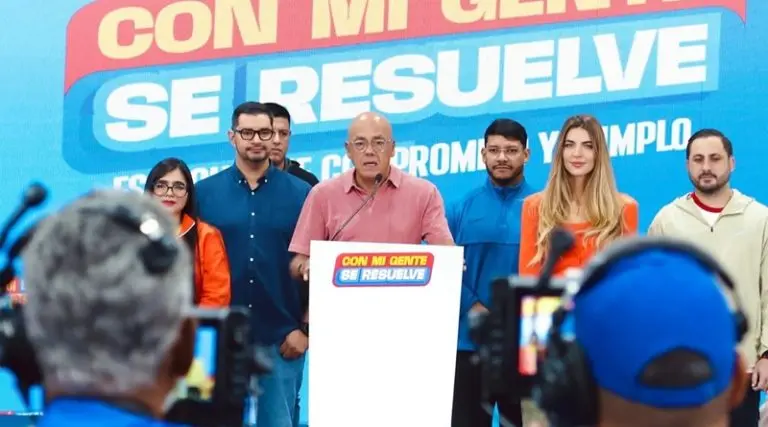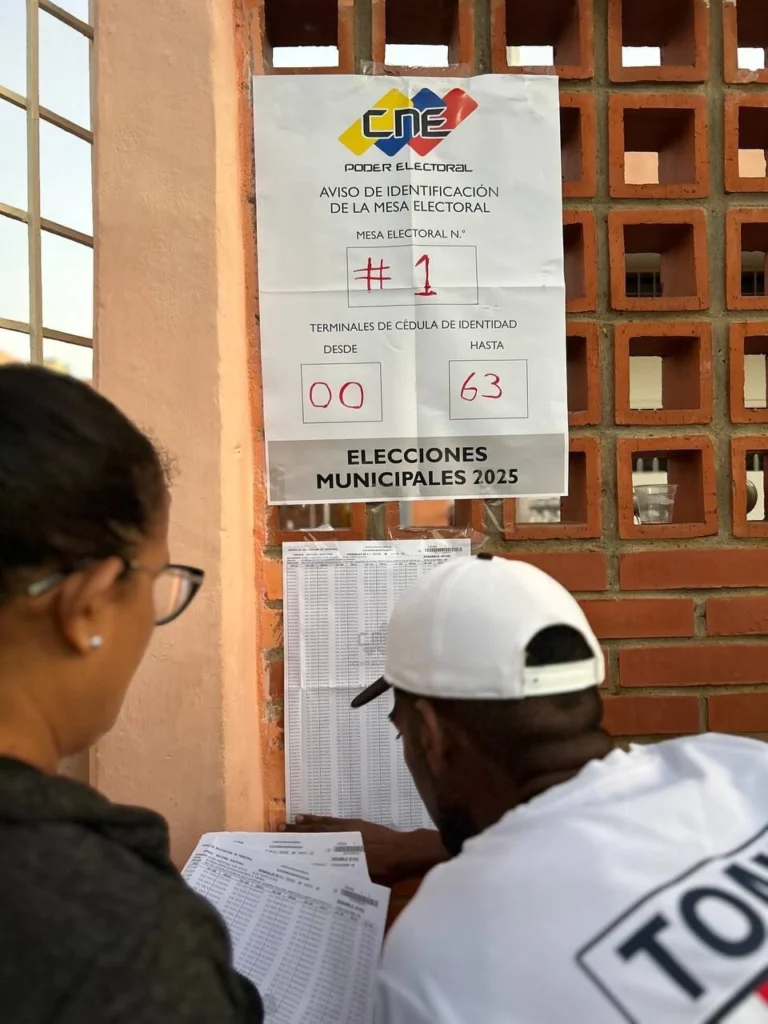8 Proven Truths: How Venezuela 2025 Municipal Elections Cemented Peace, Youth Power, and Democratic Resilience

Venezuela municipal elections 2025: Jorge Rodríguez highlights peace, youth participation, and democratic consolidation 27/7/2025 Photo: VTV
July 27, 2025 Hour: 1:11 pm
Jorge Rodríguez hails Venezuela 2025 municipal elections as a historic triumph of peace and participation. Discover how youth-led projects and mass turnout reaffirmed the nation’s democratic strength.
Related: 7 Powerful Reasons Why Venezuela’s 2025 Municipal Elections and Youth Consultation Are a Historic Day of Unity and Celebration
7 Proven Truths: How Venezuela’s 2025 Municipal Elections Cemented Peace, Youth Power, and Democratic Resilience
On July 27, 2025, Venezuela’s political landscape was reaffirmed not through conflict, but through mass civic engagement, peace, and youth protagonism. In a powerful post-election address, Jorge Rodríguez, Head of the Unified Command of the Bolivarian Revolution, declared the municipal elections and the National Youth Popular Consultation a historic milestone—a resounding victory for democracy over extremism, and for popular participation over abstention.
The Venezuela municipal elections 2025 were not just about electing mayors—they were a national affirmation of peace, unity, and the enduring strength of participatory democracy.
Held across all 335 municipalities, the elections saw over 21.5 million citizens choose 335 mayors and 2,471 councilors, while simultaneously voting on thousands of youth-led community projects through the National Youth Popular Consultation—a groundbreaking mechanism that integrates youth directly into local governance.
Rodríguez emphasized: “In any election, anywhere in the world, what matters are the votes. The one with the most votes wins.” This simple yet powerful statement underscored the legitimacy, transparency, and efficiency of Venezuela’s electoral system—a system that, despite external skepticism, continues to mobilize millions in a peaceful, orderly, and celebratory process.
Youth, Peace, and Power: The National Youth Popular Consultation as a Democratic Revolution
One of the most transformative aspects of the day was the unprecedented role of youth, institutionalized through the National Youth Popular Consultation—a parallel vote allowing young Venezuelans to select community projects they designed in 5,338 communal circuits nationwide.
This is not youth engagement as spectacle—it’s youth power as policy.
Rodríguez praised the process as a living expression of direct democracy, where young people didn’t just vote for leaders, but for the future of their neighborhoods. Projects ranged from urban agriculture and recycling cooperatives to cultural centers and digital literacy hubs—all born from house-to-house assemblies and communal debates.
Sergio Lotartaro, Minister of Youth, celebrated the nationwide mobilization:
“This consultation has no political distinctions. It has mobilized families across Venezuela in support of their youth.”
He highlighted how young people used door-to-door outreach and neighborhood assemblies to articulate their vision for community development—proving that democracy is not just exercised at the ballot box, but in the streets, homes, and plazas of the barrios.
External Link: CNE Official Results Portal – July 27 Elections
External Link: UNDP Report on Youth Political Participation, 2025
Geopolitical Context: A Model of Stability in a World of Polarization
At a time when democracies globally face declining trust, rising extremism, and electoral violence, Venezuela’s 2025 elections stood in stark contrast. The day unfolded in calm and celebration, with no reports of major incidents, fraud, or unrest.
While some narratives paint Venezuela as unstable, the reality on the ground reveals a robust, participatory democracy with deep institutional roots.
Rodríguez directly challenged campaigns of abstention and disinformation, calling them “a remote attack” by extremist sectors.
“Abstention doesn’t exist—it’s a ghost. What exists are votes,” he stated firmly.
He credited the “democrats of Venezuela”—not any single party—for defeating these efforts in both the May 25 and July 27 electoral processes.
This broad-based participation, including from opposition-aligned voters, reflects a maturing political culture where citizens—regardless of ideology—see value in local governance that impacts schools, roads, and public services.
Logistics, Efficiency, and the Power of the Communal Machine
The electoral process was not only peaceful—it was highly efficient. Rodríguez described the deployment as “the most powerful political machinery in Venezuela’s history”, with over 5,338 communal circuits mobilized to support voting and awareness.
Despite adverse weather in Apure, where heavy rains threatened turnout, the regional government led by Governor Wilmer Rodríguez ensured access through coordinated logistics, proving the resilience and adaptability of Venezuela’s electoral infrastructure.
The state and people are not separate—the state is the people in motion.
The National Electoral Council (CNE) once again demonstrated its operational capacity, with voting completed swiftly and transparently. The use of digital tools like the @RECNE_bot on Telegram allowed voters to locate polling centers instantly, reducing confusion and increasing accessibility—especially for first-time and rural voters.

Beyond Elections: Building Peace Through Dialogue and Unity
Rodríguez made it clear: these elections were not just about power—they were about peace.
“These elections will generate deep dialogue between mayors, councilors, and neighbors—because that is their true purpose: the reconciliation of brothers and comrades,” he said.
This vision positions local government not as a battleground, but as a space for conciliation, cooperation, and communal planning. By integrating youth projects into municipal agendas, the process ensures that local leadership is accountable to the people, not just political machines.
The inclusion of 69 Indigenous councilor positions further reinforces the plurinational character of Venezuela’s democracy, ensuring that marginalized voices are not only heard but represented.
Conclusion: A Nation That Chooses Peace Over Chaos
The Venezuela municipal elections 2025 were more than a political event—they were a civic festival, a rejection of violence, and a celebration of popular power.
With massive turnout, youth protagonism, and cross-spectrum participation, the day proved that democracy in Venezuela is not only alive—it is deeply rooted, participatory, and resilient.
As Jorge Rodríguez concluded: “This is not just an election. It is a true decision by the people—real, direct, and sovereign.”
In a world searching for alternatives to polarization, Venezuela offers a model: democracy as peace, participation, and collective construction.
From the barrios of Caracas to the plains of Apure, millions voted not out of obligation, but out of love for their communities, their country, and their future. That is not just democracy. That is revolution in motion.
External Link: Organization of American States – Electoral Observation Mechanisms
Author: JMVR
Source: VTV/YD/CP

